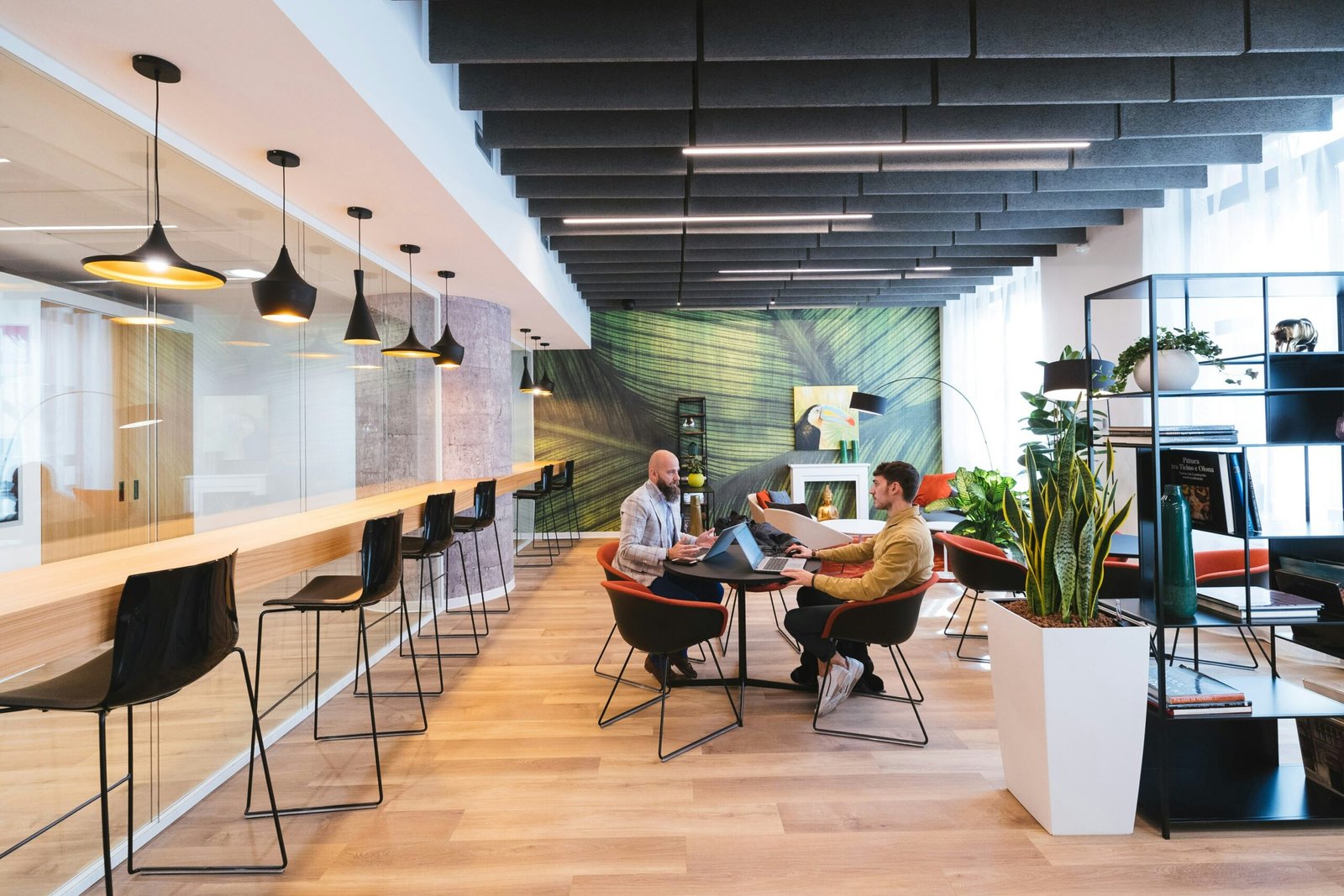How Entrepreneurs Have Scaled Their Business with Co-Working
In the ever-evolving landscape of entrepreneurship, one trend has consistently driven success for startups and small businesses alike — co-working. From early-stage ventures to rapidly growing companies, entrepreneurs are finding that shared office spaces are more than just a desk and Wi-Fi. They are launchpads for growth, innovation, and scale.
This blog dives deep into Co-Working Success Stories and explores how entrepreneurs using co-working spaces have scaled their ventures efficiently, cost-effectively, and with strong community backing.
The Rise of Co-Working: More Than Just a Trend
Gone are the days when startups were confined to coffee shops or garage setups. Today’s entrepreneurs seek dynamic environments that foster creativity and collaboration. Enter the co-working space — a shared office concept designed to deliver flexibility, affordability, and a network-driven ecosystem.
According to recent industry reports, more than 35% of startups in India now begin their journey in co-working spaces, and that number is expected to grow. Why? Because co-working isn’t just about a seat at a desk. It’s about work, connect, thrive — and that’s what Broklink is all about.
Real Co-Working Success Stories: Proof That It Works
1. The Tech Startup That Found Its Tribe
When a two-member tech startup needed a plug-and-play office in Mumbai, they joined a co-working space near Andheri. Within six months, their team had grown to 10 members, thanks to daily interactions with developers, product managers, and investors sharing the same space. Access to this diverse talent pool helped them refine their MVP and close a seed funding round.
2. The D2C Brand That Boosted Sales via Networking
A bootstrapped direct-to-consumer (D2C) skincare brand joined a shared workspace in Bengaluru. Just by networking in the pantry, they discovered a freelance performance marketer who later helped double their online sales. A co-working environment gave them access to essential skills without expensive agency retainers.
These stories showcase how startup growth in co-working environments is driven by collaboration, accessibility, and serendipity.
Why Co-Working Works: Key Benefits for Entrepreneurs
1. Built-In Networking Opportunities
Co-working spaces are melting pots of talent. Whether you’re a founder, designer, coder, or sales pro, you’re surrounded by people who can help solve your next big challenge.
Co-working spaces for entrepreneurs foster organic conversations, brainstorming sessions, and mentorship that traditional offices simply don’t offer.
2. Cost-Effective Growth Model
Forget long-term leases, maintenance headaches, and upfront capital expenses. With shared office spaces, you pay for what you use — and scale as you go. This model is perfect for scaling business with co-working.
You don’t need to invest in infrastructure. Focus that capital on hiring, product development, or marketing instead.
3. Flexibility with Zero Lock-ins
Entrepreneurs evolve fast. One month you’re a solo founder, next month you’re hiring a team of five. Co-working spaces understand that. Whether it’s upgrading from a hot desk to a private cabin, the transition is seamless and supportive.
This flexibility empowers startup growth in co-working environments without the friction of traditional real estate.
4. Community-Led Learning
From pitch nights to growth hackathons, co-working spaces often host events that allow founders to learn from others’ journeys. These platforms enable the exchange of real-world insights, saving time and costly mistakes.
If you’re looking for how co-working helps business expansion, this is it. You’re not just learning from your failures — you’re learning from others’ wins too.
Scaling Up: Business Case Studies from Co-Working Setups
Case Study 1: A SaaS Startup’s Leap from 0 to 100 Clients
An early-stage SaaS company started out in a co-working facility in Pune. By participating in weekly founder meetups, they connected with a community manager who introduced them to a growing HR-tech firm — their first client.
Within a year, this networking snowballed into multiple referrals, growing their customer base to 100+ without a dedicated sales team. It’s a classic example of shared office space success.
Case Study 2: The Consulting Firm That Landed Corporate Clients
A solo legal consultant set up base in a co-working space in Delhi. Her presence among startups and SMEs allowed her to fine-tune her offerings. But her real breakthrough came when she connected with a product company that needed help with compliance — leading to a long-term retainership.
This showcases how co-working business case studies reflect the power of being visible and available in the right ecosystem.
The Psychological Edge: Motivation Meets Accountability
Entrepreneurs using co-working spaces often report higher productivity. Why? Because they feel part of something bigger. Working in a vibrant space naturally boosts motivation.
You see people launching, failing, pivoting, succeeding — and that energy rubs off.
Also, there’s accountability. Unlike working from home, where it’s easy to slack off, co-working brings structure to your workday without the rigidity of a corporate office.
Sector-Wise Adoption of Co-Working in India
- Tech Startups: To build agile, cross-functional teams with minimal overhead.
- D2C Brands: For shared warehousing, marketing contacts, and community feedback loops.
- Creative Agencies: For exposure, inspiration, and on-the-go collaboration.
- Consultants & Freelancers: To boost visibility and credibility among serious clients.
The benefits of co-working for startups cut across industries, making it a foundational pillar in modern entrepreneurial ecosystems.
How Co-Working Helps Business Expansion Strategically
- Pan-India Presence without the Cost
Want to test a new city? Simply switch or expand to a co-working branch there. No need for hefty CAPEX or long-term rental agreements. - Access to Talent and Services
Need a designer? An SEO expert? Most co-working platforms have internal directories or can refer you instantly. - Investor Proximity
Many VCs and angel investors now work out of or visit co-working hubs regularly. Being visible in such hubs increases your chances of a warm introduction.
These advantages highlight how co-working helps business expansion faster and smarter than conventional routes.
What to Look for in a Co-Working Space as an Entrepreneur
- Scalability: Can it grow with you?
- Location: Proximity to talent and clients matters.
- Community: Look beyond decor. Who’s actually working there?
- Facilities: From high-speed internet to coffee machines and meeting rooms.
- Support Services: Legal, HR, accounting — these extras can save you time and money.
At Broklink, we offer thoughtfully designed spaces that combine these elements to help entrepreneurs not just work, but truly connect and thrive.
Final Thoughts: Co-Working as a Catalyst for Entrepreneurial Growth
In today’s competitive landscape, every edge matters. Co-working spaces give entrepreneurs a strategic advantage by offering agility, networking, support, and most importantly — a community that’s rooting for your success.
If you’re serious about scaling your business smartly, then choosing the right co-working space is not just a convenience — it’s a growth strategy.
Ready to Scale Your Business the Smart Way?
At Broklink, we’re not just offering you a desk — we’re offering you an ecosystem. Join a space where you can work, connect, thrive alongside other changemakers.
👉 Book your free co-working consultation today and discover how your business can grow in the right environment.















